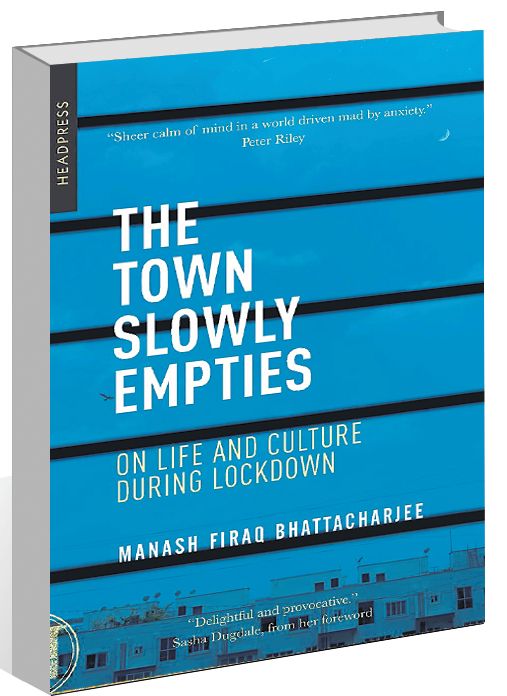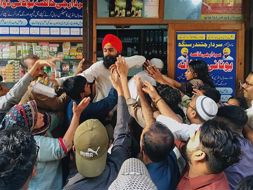The Town Slowly Empties by Manash Firaq Bhattacharjee. Copper Coin. Pages 178. Rs 399
Book Title: The Town Slowly Empties
Author: Manash Firaq Bhattacharjee
Chandni S Chandel
WE must consider ourselves lucky to have survived an epic lockdown. Everybody was struggling against time, varied fallouts of the lockdown and misery, but those like Manash Firaq Bhattacharjee were slowly, beautifully and aesthetically emptying their minds onto black and white. The reader can definitely relate to his experiences, his intellect being a value addition.
The author lays threadbare his philosophy, thoughts, feelings and observations as he chronicles a part of the lockdown days in a vivid account in his book. What’s the cutting edge in his journal that makes it different?
A passionate reader, JNU-bred Manash has blended into his own thoughts, the prose and poetry of different authors, poets and philosophers ranging from TS Eliot, Gabriel Garcia Marquez, Faiz Ahmad Faiz, Charles Baudelaire to WG Sebald, Fernando Pessoa, Milan Kundera, K Satchidanandan and Constantine Cavafy, many of whom a common reader wouldn’t have read. He quotes them on things as varied and unusual as blades of grass, moustaches, migrant labourers, masks, love and friendship, stammering, dreams, sleep.
Sifting through the pages, one gets multiple perspectives. For instance, when his friend shares a picture of a flower, Madhulata, on WhatsApp, he links it to his father’s fetish for flowers, after which he goes on seamlessly to talk about Viginia Woolf’s novel ‘Mrs Dalloway’, where the protagonist has a thing for flowers. One generally doesn’t come across such a neat amalgamation.
Once in a hundred years, epidemics come to test humanity — whether it is the Great Plague of London in 1665, chronicled in ‘A Journal of the Plague Year’ by Daniel Defoe; the plague of 1894 that finds mention in Gandhi’s ‘My Experiments with Truth’; or the Spanish flu epidemic of 1918 in which Eliot and his wife, Vivien, suffered. In India, Hindi poet Nirala lost his wife and daughter to the flu. In his memoir, ‘Kulli Bhaat’ (‘A Life Misspent’ is its English version), Nirala has narrated similar instances of bodies floating in the Ganga as we saw during the Covid pandemic this year. He wrote: “The Ganga was swollen with dead bodies, at my in-laws’ house, I learnt my wife had passed away... my family disappeared in the blink of an eye.”
In these unusual times, nothing could be more relevant than French thinker Michel Foucault’s words that in earlier times, ‘care of the self’ included writing. The author has quoted him and is probably one of the few to have applied his axiom too. The range of thoughts warrants optimism in times of uncertainty and isolation. Talking about the unacknowledged labour of migrant construction workers, he writes, “…the workers occupy the building till the last job is done … the memories of labour that make our lives possible, that build our homes, are not part of our memory.”
The reader shouldn’t go by the title of the book, ‘The Town Slowly Empties’, as it might incur pessimistic emotions of misery. On the contrary, it feeds your mind with much to ponder upon. The book is a delight for social thinkers and the non-literary ones alike as it is food for thought to the former and education for the latter.














